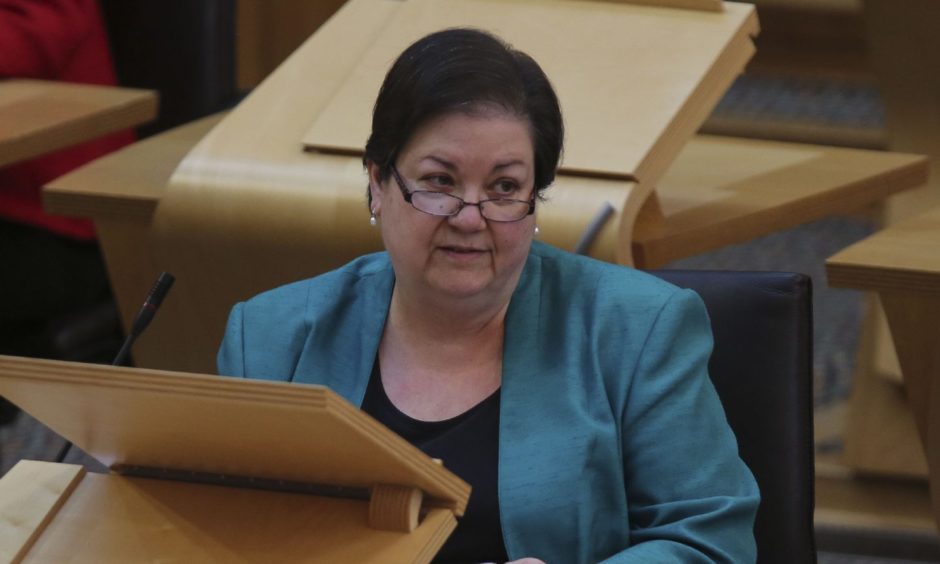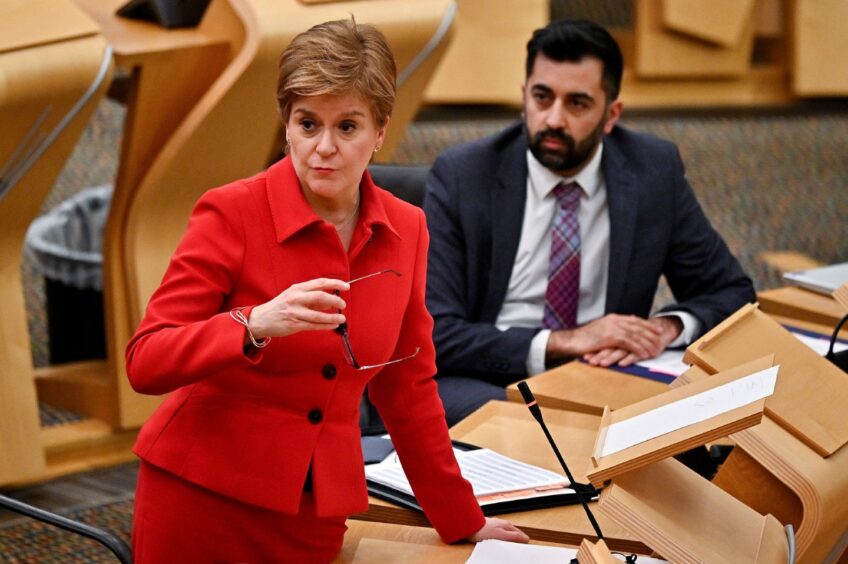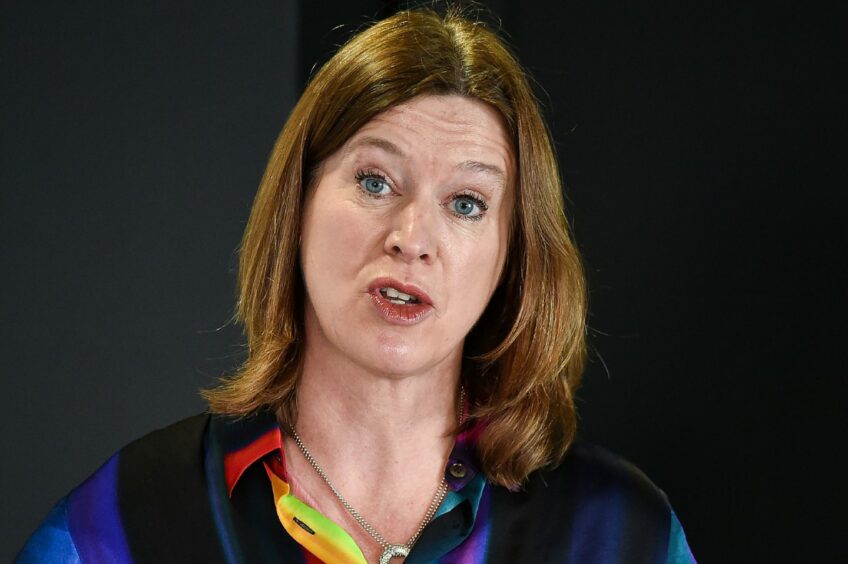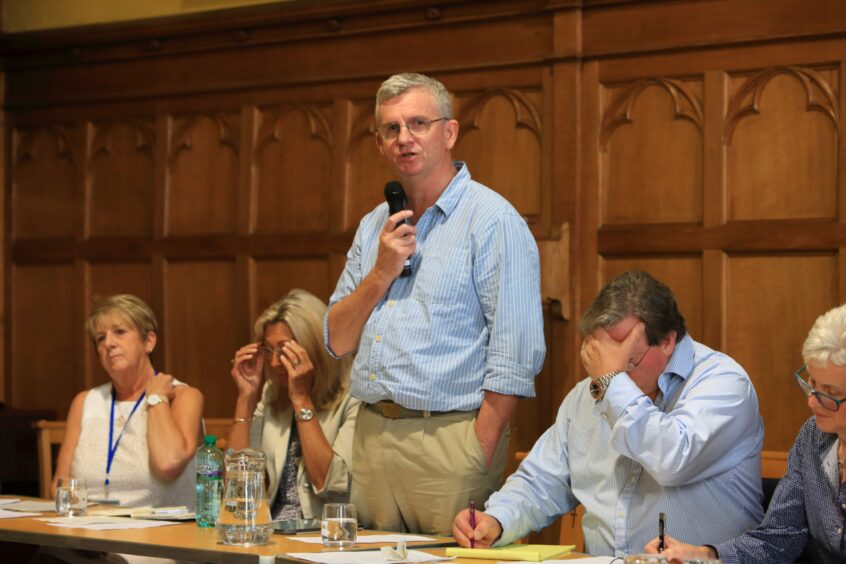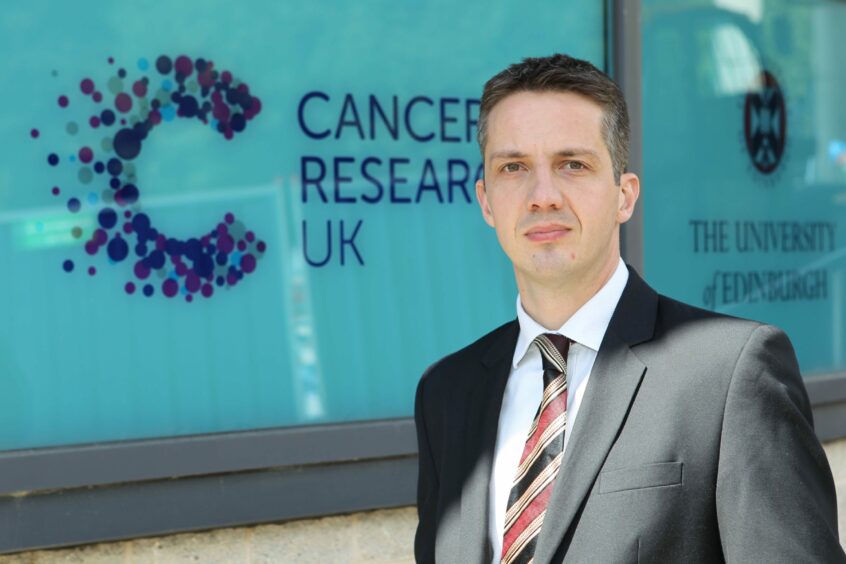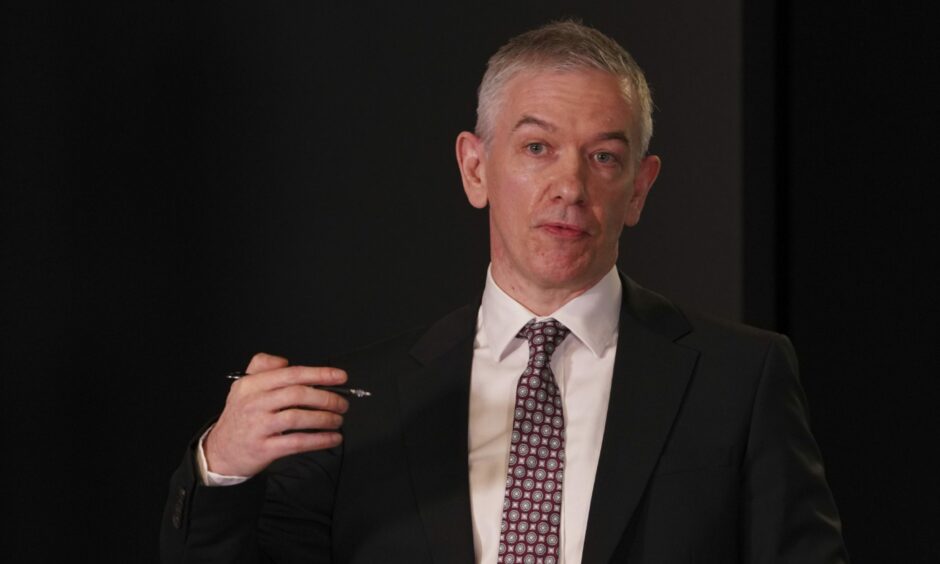Nicola Sturgeon is under pressure to launch an independent inquiry into a breast cancer treatment scandal in Tayside, as newly uncovered documents reveal a litany of warnings were “overlooked” by health chiefs.
Leading members of the Scottish Parliament’s cross-party group on cancer said a government probe is needed to “rebuild public trust and secure the future of lifesaving breast cancer care” in the region.
SNP ministers have previously rejected multiple requests from patients, doctors and local politicians for an independent investigation.
The latest calls comes one day after we revealed NHS Tayside non-executive board member Dr Norman Pratt accused senior management last year of being “complicit in the cover-up of a major clinical service scandal”.
Dr Pratt believes bosses allowed doctors to remain in the firing line over a series of botched and disputed government reviews into the treatment of around 200 women.
They were given “lower than standard” chemotherapy doses before April 2019, as detailed in a Healthcare Improvement Scotland report ordered by ministers.
The doctor – who is chair of the Tayside area clinical forum – claims the board’s “own medical management” privately accepts there is no clinical evidence to back up claims in the reports that patients were put at 1-2% increased risk of seeing their cancer return.
We can reveal further correspondence details that health chiefs and government officials were given multiple warnings that reviews into the scandal were “deeply flawed” and would lead to the breast oncology service collapsing.
Months later, the department is in turmoil and being supported by other health boards as the final member of a medical team who accused bosses of throwing them “under the bus” prepares to take early retirement in January.
Astonishing revelations
Scottish Labour MSP Jackie Baillie, who is co-convener of Holyrood’s cross-party cancer group, called for a “full independent investigation into this scandal”.
“These astonishing revelations raise yet more questions about how things were allowed to go so badly wrong,” she said.
“This scandal has been seriously damaging to patient trust and the future of breast cancer services in NHS Tayside.
“Physicians and frontline staff were clearly sounding the alarm about these potential consequences – we need answers on why their warnings were overlooked by the health board and the Scottish Government.”
Scottish Conservative MSP Miles Briggs, who is the other co-convener of the group, said the situation at NHS Tayside has been allowed to “drag on for too long”.
He said government ministers and health bosses have effectively “closed ranks” around the crisis and left the doctors feeling “completely hung out to dry”.
“Patient safety is of course the number one issue but the professional damage the specialists feel was done to them has never properly been resolved,” Mr Briggs said.
“It leaves them and the service in a completely unacceptable situation.
“To come back from that, to repair that damage, I think that’s where an independent inquiry could help.”
Nicola Sturgeon says claims must be ‘properly investigated’
Asked about the concerns raised by Dr Pratt during first minister’s questions on Thursday, Nicola Sturgeon said she expects NHS Tayside to “properly investigate”.
She said: “I am obviously aware of the concerns that have been raised. NHS Tayside is also fully aware of these concerns.
“Let me be very clear, I would expect NHS Tayside to properly consider and investigate any issues that have been raised.
“The Scottish Government has been advised that the board has thoroughly investigated the matters raised.”
Ms Sturgeon said the health board has provided a “comprehensive timeline of correspondence and meetings” showing issues relating to the breast cancer team were openly discussed – including ones Dr Pratt “actively contributed to”.
The Scottish Government declined to comment further on the calls for an independent investigation or whether it stands by the findings of the reports it commissioned.
NHS Tayside said its medical director reviewed Dr Pratt’s submission of clinical and academic evidence for local breast cancer services.
A spokeswoman confirmed the medical director “wrote directly to Dr Pratt with the outcome of this review nearly a year ago concluding that there should be no unique variation in treatment offered in NHS Tayside as compared to other cancer centres as set out in the external independent documented opinion”.
Dr Pratt recently wrote to members of the cross-party cancer group still seeking answers for doctors and patients.
In full: Litany of missed opportunities for bosses to get a grip on crisis
In April 2019, an NHS Tayside consultant from outside the breast oncology team wrote to then-Chief Medical Officer Catherine Calderwood outlining his multiple reservations with the findings of government-commissioned reports.
He noted there was no practising breast oncologist on the review group and no evidence presented that patients were put at risk.
The consultant wrote again in November, this time to Gregor McNie, the Scottish Government’s lead on cancer strategy, describing a Healthcare Improvement Scotland report, commissioned by the government, as “scandalously flawed”.
He warned: “Something needs to be done to re-evaluate what is going on here. Everybody seems stuck and embedded in their positions.
“Some imaginative thinking and action is needed from the centre (it is my impression that local management has its hands tied on this issue). The real risk otherwise is that an entire service for all cancer patients in this region will collapse.”
In May 2019, a retired NHS Tayside oncologist wrote to Catherine Calderwood to express his concerns over the claims of a 1-2% increased risk of cancer recurrence.
He claimed the report was “obviously put together in haste” and the group “overlooked important (publicly available) data”.
The retired doctor called for the Healthcare Improvement Scotland report to be immediately retracted.
He added: “The breast oncologists need to feel and see that their care is viewed as excellent and that it is valued by the trust otherwise breast cancer care in Tayside is likely to collapse.”
In June 2020, four members of the multi-disciplinary cancer team – colleagues of the breast oncologists – wrote to NHS Tayside medical director Peter Stonebridge to express “deep concerns regarding the state of breast services in Tayside”.
They warned: “At the present time we are unable to provide a breast service in NHS Tayside”.
The group described a Healthcare Improvement Scotland report, commissioned by the government as “deeply flawed” and also noted the investigating team did not contain either a medical or clinical oncologist.
They said subsequent reviews – such as the one that predicted the risk of cancer recurrence – only perpetuated these errors.
Following a confidential briefing, the breast oncologists noted that October they “do not believe their voice has been heard” and that they feel their lives and service are being “destroyed” by the Scottish Government and NHS Tayside.
In February 2021, Norman Pratt wrote to Gregor McNie saying “something must be done while there is still any breast oncology service at all left in Tayside”
He again asked on what evidence the HIS and IRG reports came to their conclusions, and said any resolution of patient and family concerns can now only come via a full public inquiry.
Dr Pratt said any board member, politician, external body or committee “would come to entirely different conclusions” from the government reports based on a proper review of current breast cancer literature and independent expert opinion.
He added: “Tayside is in existential crisis and we are drinking in the last saloon. It is through the light of this uncomfortable reality that our future actions must be judged.”
Earlier this month, Dr Pratt wrote again to Mr McNie, copying in Chief Medical Officer Gregor Smith and National Clinical Director Jason Leitch, raising concerns about the reports.
Further expert opinion, collated by NHS Tayside consultants, includes a top breast cancer doctor at the Royal Marsden Hospital in London, who stated the decision to lower doses “was a reasonable one” and one she agrees with.
Her view is that it is “very unlikely” the reduction in dose “could have any clinically relevant detrimental effect on any aspect of outcome”, adding that she thinks it is “even more unlikely that it could significantly reduce survival chances”.
Meanwhile, a Scots oncologist, who has gone through breast cancer treatment, said the doctors should be “commended” for adjusting the dose after auditing the “very high rates” of toxicity experienced by their patients from the higher amount.
She added: “Crucially the evidence base for this level of dose reduction translating into a negative impact on survival is entirely lacking.”
